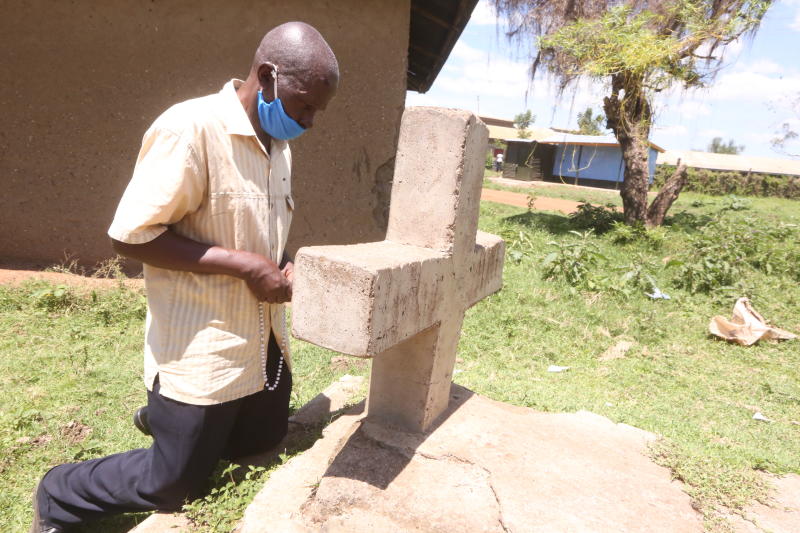×
The Standard e-Paper
Kenya’s Boldest Voice

Patrick Adongo prays at the graveyard of his late mother at Manyatta estate in Kisumu county on November 10, 2020. [Collins Oduor, Standard]
Patrick Adongo kneels while facing his mother’s grave. He bows his head while holding a rosary and murmurs a few intimate words.